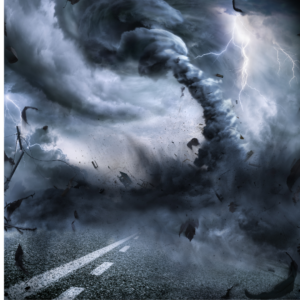Countdown to Chanukah 6 – The Curmudgeon
 I am considering becoming a curmudgeon for both religious and financial reasons.
I am considering becoming a curmudgeon for both religious and financial reasons.
-
- For those of you who read, “Fasting Training Exercises,” I am not breaking my “fast”; I am considering becoming a temporary curmudgeon.
- For those who already consider me an ungrateful grouch, well, I want to transform a negative quality into something constructive.
- Eric Kaplan wants me to fast from anything less than perfect joy (He makes for a lousy curmudgeon) and, I just discovered that Gratitude can limit joy!
I can’t decide whether to begin with gratitude or ingratitude for Josie Glausiusz, who seems to know and write about everything in science in accessible ways, and author of, “Buzz: The Intimate Bond Between Humans and Insects,” (a book I had to read for highly personal reasons.)
A few years ago, Josie posted an essay, “Thanks for the Gratitude,” which, for me raised important questions about Chanukah, and recently served as a reminder how to be sensitive during the Covid crisis.
A friend of hers posted an Ingratitude Challenge on Facebook. People were shocked. Has it not been proven that gratitude makes people happier and more likely to help others?
One of the most significant studies on the positive effects of Gratitude was from Sonja Lyubormirsky , professor of psychology at the University of California, Riverside. When asked whether ingratitude has negative effects, Dr. Lyubormirsky emailed, “I don’t know of any research on this or what ingratitude might inspire! However, recently my lab found that gratitude, in addition to making people feel happy, more connected, inspired, etc., also makes people feel uncomfortable, guilty, and embarrassed sometimes.”
One of Dr. Lyubormirsky’s graduate students master’s thesis demonstrated that experiencing gratitude also leads to “higher levels of guilt, discomfort, indebtedness, humility, and embarrassment than controls.”
The thesis, written by Christina Armeta demonstrated that “Gratitude can coexist with a sense of indebtedness, because those expressing gratitude often feel a need to reciprocate kindness, especially when they are in a subordinate social position. They may also feel guilty for not previously thanking their benefactor, or embarrassed if the kindness bestowed indicates their own “neediness or lower status.”
This above is not enough to convince me to increase my ingratitude.
- I don’t mind my indebtedness specifically because I feel compelled to reciprocate. I’ve recently used a sense of indebtedness to pray with all my heart for people who have been unkind in recent years.
- I try to write as often as possible because I am indebted to you who read with such generosity.
- I teach because I am indebted to those who are interested in what I have to offer.
- Of all the personal characteristics I am compelled to repair it is insufficient gratitude. The drive to repair is because I am indebted to so many people with whom I study who inspire me and push me to become a better person. I wrote of you in, “This Is My Chanukah.”
- I love Chanukah as the Festival to Master “Hoda’ah,” Gratitude.
BUT
-
- Am I aware of the possible negative effects of Gratitude on all those with whom I learn about Chanukah?
- Do I know how to introduce gratitude without triggering, “higher levels of guilt, discomfort, indebtedness, humility, and embarrassment”?
- Perhaps I should explain to my children, in-laws, and grandchildren that I don’t want them to experience any negative consequences of Chanukah gifts…
When Josie Glausiusz asked her friend why she posted her Ingratitude Challenge she responded, “that the gratitude challenge may be “a great personal exercise,” but she also asked, “What about sensitivity to Facebook friends who may have just been diagnosed with cancer, or been fired or dumped, or stuck home with kids with pneumonia? Do they really want to read lists of what is so fabulous in other people’s lives?”
This was a wallop to my belly, especially during Covid.
If the streets were not strung with lights and decorated trees and pictures of someone who, (my, long ago very young, nieces and nephews thought looks like a certain Uncle of mine), I would ask whether it’s appropriate to publicize the miraculous life of the Jewish people who continue to live with and believe in miracles.
If flags are being flown at half-mast as long as people are dying of Covid, shall I temper my Chanukah joy?
Shall I become a curmudgeon this year?
The frightening response is that few see a Menorah and think of miracles.
Few light the Menorah celebrating the possibility of the miraculous.
Few prepare a Menorah in the spirit of Gratitude.
(Am I beginning to sound like a curmudgeon?)
The time to focus on miracles is now, before Chanukah, before we light the Menorah, before we sing Hallel:
Have we witnessed or experienced anything miraculous over the past year?
The time to nurture our belief in the possibility of the miraculous is now, before Chanukah, before we light the Menorah, before we sing Hallel:
Practice praying with a conviction that the miraculous is possible.
I will pray for that person to be healed.
I will pray for that person to find happiness.
I will pray for that person to be treated with kindness and truth and justice.
I will pray for those children to find their way.
I will pray for those parents to have the wisdom and patience and infinite love to guide their children.
I will pray for that person to find a great job.
The time to nurture our Gratitude is now, before Chanukah, before we light the Menorah, before we sing Hallel – The Ultimate Song of Gratitude:
How have I benefited from others?
Who helped me live through these past difficult months?
Who called?


